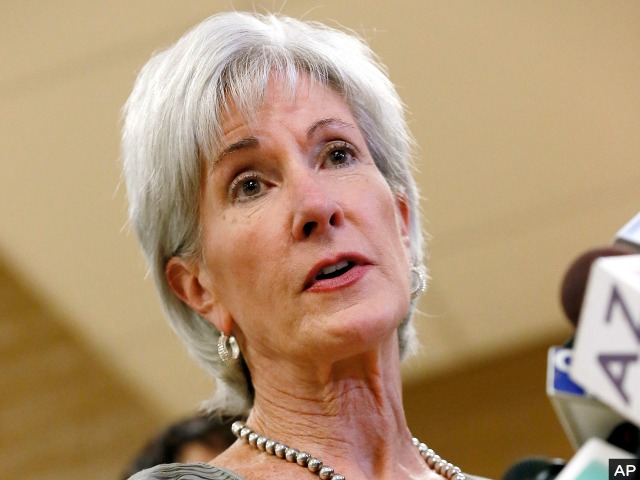In a move sure to spark consternation inside the White House, Rep. Phil Gingrey (R-GA) sent a letter Tuesday to embattled Health and Human Services (HHS) Secretary Kathleen Sebelius requesting she produce a list of the one-on-one meetings she and President Barack Obama allege to have held in the over three-and-a-half years leading up to Obamacare’s calamitous rollout–meetings that do not appear on the White House’s own official calendar.
“I have been greatly concerned over the lack of transparency and disregard for straight answers,” says Gingrey in his letter to Sebelius. “The Government Accountability Institute reported this month that according to the White House calendar, you have only met with the President once at the White House since becoming Secretary. Yet the White House has disputed the account and claims that you have been briefing the President regularly.”
Last week during a House Energy and Commerce Committee hearing, Gingrey, a medical doctor, asked a flustered Sebelius how many one-on-one meetings she had with Obama. “A lot,” replied Sebelius. Gingrey then asked whether she could verify her statement. “I, I…,” Sebelius uttered while flailing her hands. The committee chair then announced that Gingrey’s time for questioning had expired.
Gingrey says in his letter that the American people deserve to know “how the rollout of the healthcare law has been botched so badly, who in the administration knew what, and when officials received warnings of problems.”
Gingrey’s request to Sebelius comes on the heels of an explosive report and Politico Magazine article by the Government Accountability Institute (GAI) that found the official White House calendar and the Politico presidential calendar do not record a single one-on-one meeting between the HHS chief and Obama since Obamacare was signed into law on March 23, 2010. Only once does Sebelius’s name appear–in a meeting that also included then-Treasury Secretary Tim Geithner. Curiously, those same calendars record 277 private meetings between Obama and other Cabinet secretaries.
Specifically, Gingrey says he wants Sebelius to answer the following questions:
- How many times have you met in-person with the president since the passage of the Affordable Care Act (ACA)?
- How many meetings did you have with White House staffers to discuss ACA?
- Were issues regarding implementation deadlines discussed? If so, what directions were given?
- How many meetings did you have with White House, CMS, and other agency personnel to discuss ACA implementation?
- When it became clear that the ACA would not be ready by October 1, who in the White House was briefed? When was he or she briefed? What were they told?
- Specifically, did you meet with the president after you received the McKinsey briefing? If yes, did you inform him of the grave warnings outlined? If no, why not?
Gingrey’s last question refers to a critical April 4, 2013 meeting wherein McKinsey & Co. consultants presented a 15-slide presentation to Sebelius and Centers for Medicare and Medicaid Services Administrator Marilyn Tavenner. The presentation cautioned that the ideal situation for the Obamacare website would include “end-to-end integrated operations and IT testing” and warned that there was “insufficient time and scope of end-to-end testing.”
The Georgia congressman’s letter to Sebelius places the already beleaguered Obama Administration in a difficult and dangerous political quandary that could further erode the president’s already sinking trustworthiness and approval ratings.
During his roundly-criticized November 14 press conference, Obama promised the American people that he was unaware of the HealthCare.gov problems until after the website was launched on October 1. But as GAI President Peter Schweizer pointed out in a Politico Magazine article, “If Obama and Sebelius worked together closely and regularly, why did the president publicly state he did not know about the problems with HealthCare.gov?”
That unanswered question threatens to further unravel Obama’s tenuous standing with Independent voters who tend to base political preferences more on executive performance and leadership traits and less on ideological positions.
Former counselor to four presidents from both parties David Gergen said on CNN that the GAI report and the White House’s refusal to turn over the dates of the alleged one-on-one meetings between Sebelius and Obama suggests that “there was no one in charge in the administration.”

COMMENTS
Please let us know if you're having issues with commenting.